Toddler - Intellectual
Guided by their teachers, our toddlers experience and come to expect to be actively involved in their own learning. They are encouraged to explore, question, try, fail, and problem solve on their path to building skills and acquiring knowledge.
Below are our toddler goals for each of our content areas and some examples of our curriculum activities.
Natural Science:
Inquiry Skills
• Uses trial-and-error approach to solve a problem and understands through
the process that certain behaviors can cause results.
• Begins to create and carry out plans for solving simple problems.
• Asks questions and uses simple tools for exploration.
• Demonstrates an awareness of the effects of certain actions and begins to
investigate why something unexpected happens.
Living Things & Their Environment
• Uses senses to explore the environment and begins to use sensory
vocabulary.
• Identifies the characteristics of living things and begins to identify their
basic needs.
• Observes and describes plants, insects, and animals as they go through
predictable life cycles.
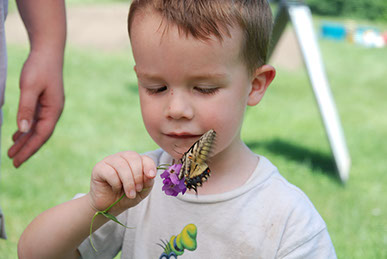
Language Arts:
Language
• Responds to teacher’s requests.
• Uses words and phrases to express wants, seeks attention, protests,
comments, or offers greetings, and participates in simple conversations.
• Develops an awareness of word sounds and rhythms of language.
• Begins to use rules of grammar.
• Describes and categorizes simple objects.
Reading/Literacy
• Enjoys listening to a variety of literature and recognizes familiar books.
• Explores books in the manner they are typically read.
• Demonstrates knowledge that a symbol can represent something else.
• Begins to develop phonemic awareness.
• Sings alphabet.
Composition
• Uses writing utensils to make lines, dots, and circles in a purposeful
combination.
• Understands writing is a way of communicating and dictates stories or
observations for teacher to record.
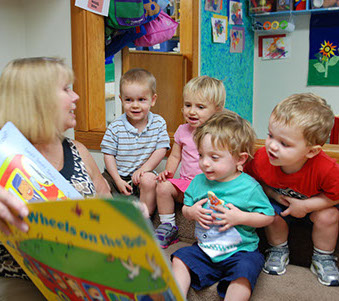
Mathematics:
Attribution & Classification
• Remembers and observes objects for details.
• Matches and sorts according to color, shape, or size.
Number Sense
• Understands number concepts one, two, more, and less.
• Arranges materials by size.
Patterns & Relations
• Describes concrete objects by their attributes.
• Recognizes and creates simple patterns.
• Recognizes environmental patterns and routines.
Shapes & Spatial Sense
• Identifies shapes in various materials.
• Follows directions given about space, direction, movement, relative position,
and size using body movement and concrete objects.
Measurement
• Begins to understand estimation and nonstandard units of measurement
with direction from teacher.
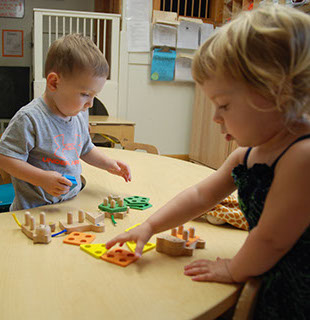
Social Science:
• Recalls past information.
• Understands classroom rules and responsibilities and follows the routine of
the day.
• Notices similarities and differences in others.
• Dramatizes various family roles and occupations through the use of props.
• Acknowledges when a teacher describes examples of personal responsibility,
fairness, rules and the qualities valued in a person’s character.
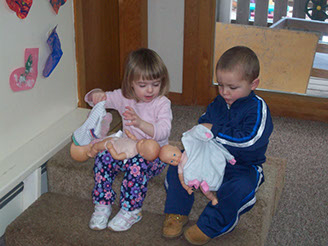
Engineering and Physical Science:
• Explores and describes a wide variety of natural and man-made materials
through sensory experiences.
• Learns safety procedures when using tools and equipment.
• Demonstrates actions that change an object’s motion such as pulling, pushing,
twisting, rolling, and throwing.
• Experiments with a variety of objects to determine how they stand, balance,
and whether they sink or float.
• Observes, describes, and compares ways humans, animals, birds, and insects
use various parts of their bodies to accomplish certain tasks.
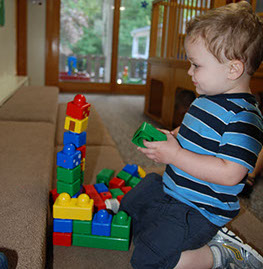
508-339-4111
1100 School St.
Mansfield, MA 02048
